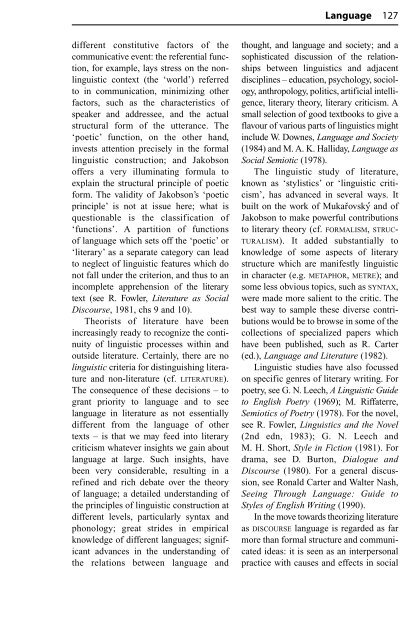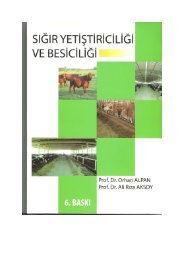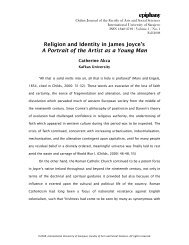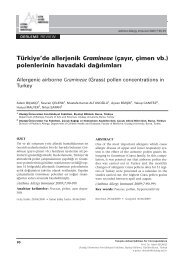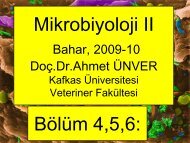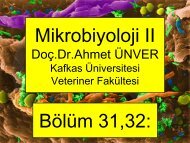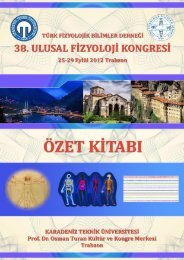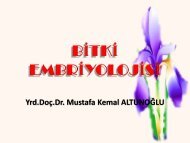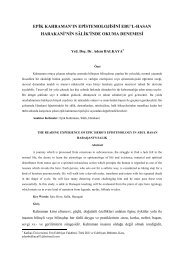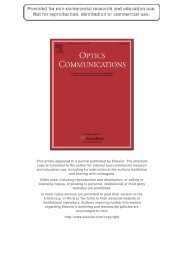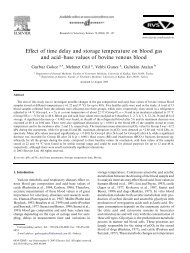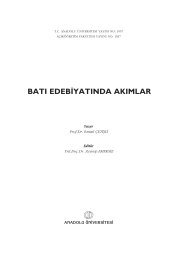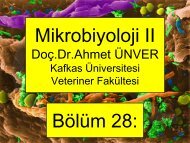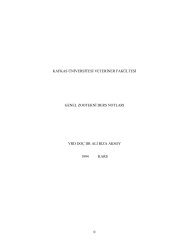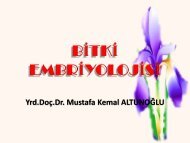The Routledge Dictionary of Literary Terms
The Routledge Dictionary of Literary Terms
The Routledge Dictionary of Literary Terms
You also want an ePaper? Increase the reach of your titles
YUMPU automatically turns print PDFs into web optimized ePapers that Google loves.
different constitutive factors <strong>of</strong> the<br />
communicative event: the referential function,<br />
for example, lays stress on the nonlinguistic<br />
context (the ‘world’) referred<br />
to in communication, minimizing other<br />
factors, such as the characteristics <strong>of</strong><br />
speaker and addressee, and the actual<br />
structural form <strong>of</strong> the utterance. <strong>The</strong><br />
‘poetic’ function, on the other hand,<br />
invests attention precisely in the formal<br />
linguistic construction; and Jakobson<br />
<strong>of</strong>fers a very illuminating formula to<br />
explain the structural principle <strong>of</strong> poetic<br />
form. <strong>The</strong> validity <strong>of</strong> Jakobson’s ‘poetic<br />
principle’ is not at issue here; what is<br />
questionable is the classification <strong>of</strong><br />
‘functions’. A partition <strong>of</strong> functions<br />
<strong>of</strong> language which sets <strong>of</strong>f the ‘poetic’ or<br />
‘literary’ as a separate category can lead<br />
to neglect <strong>of</strong> linguistic features which do<br />
not fall under the criterion, and thus to an<br />
incomplete apprehension <strong>of</strong> the literary<br />
text (see R. Fowler, Literature as Social<br />
Discourse, 1981, chs 9 and 10).<br />
<strong>The</strong>orists <strong>of</strong> literature have been<br />
increasingly ready to recognize the continuity<br />
<strong>of</strong> linguistic processes within and<br />
outside literature. Certainly, there are no<br />
linguistic criteria for distinguishing literature<br />
and non-literature (cf. LITERATURE).<br />
<strong>The</strong> consequence <strong>of</strong> these decisions – to<br />
grant priority to language and to see<br />
language in literature as not essentially<br />
different from the language <strong>of</strong> other<br />
texts – is that we may feed into literary<br />
criticism whatever insights we gain about<br />
language at large. Such insights, have<br />
been very considerable, resulting in a<br />
refined and rich debate over the theory<br />
<strong>of</strong> language; a detailed understanding <strong>of</strong><br />
the principles <strong>of</strong> linguistic construction at<br />
different levels, particularly syntax and<br />
phonology; great strides in empirical<br />
knowledge <strong>of</strong> different languages; significant<br />
advances in the understanding <strong>of</strong><br />
the relations between language and<br />
Language 127<br />
thought, and language and society; and a<br />
sophisticated discussion <strong>of</strong> the relationships<br />
between linguistics and adjacent<br />
disciplines – education, psychology, sociology,<br />
anthropology, politics, artificial intelligence,<br />
literary theory, literary criticism. A<br />
small selection <strong>of</strong> good textbooks to give a<br />
flavour <strong>of</strong> various parts <strong>of</strong> linguistics might<br />
include W. Downes, Language and Society<br />
(1984) and M. A. K. Halliday, Language as<br />
Social Semiotic (1978).<br />
<strong>The</strong> linguistic study <strong>of</strong> literature,<br />
known as ‘stylistics’ or ‘linguistic criticism’,<br />
has advanced in several ways. It<br />
built on the work <strong>of</strong> Mukarˇovskò and <strong>of</strong><br />
Jakobson to make powerful contributions<br />
to literary theory (cf. FORMALISM, STRUC-<br />
TURALISM). It added substantially to<br />
knowledge <strong>of</strong> some aspects <strong>of</strong> literary<br />
structure which are manifestly linguistic<br />
in character (e.g. METAPHOR, METRE); and<br />
some less obvious topics, such as SYNTAX,<br />
were made more salient to the critic. <strong>The</strong><br />
best way to sample these diverse contributions<br />
would be to browse in some <strong>of</strong> the<br />
collections <strong>of</strong> specialized papers which<br />
have been published, such as R. Carter<br />
(ed.), Language and Literature (1982).<br />
Linguistic studies have also focussed<br />
on specific genres <strong>of</strong> literary writing. For<br />
poetry, see G. N. Leech, A Linguistic Guide<br />
to English Poetry (1969); M. Riffaterre,<br />
Semiotics <strong>of</strong> Poetry (1978). For the novel,<br />
see R. Fowler, Linguistics and the Novel<br />
(2nd edn, 1983); G. N. Leech and<br />
M. H. Short, Style in Fiction (1981). For<br />
drama, see D. Burton, Dialogue and<br />
Discourse (1980). For a general discussion,<br />
see Ronald Carter and Walter Nash,<br />
Seeing Through Language: Guide to<br />
Styles <strong>of</strong> English Writing (1990).<br />
In the move towards theorizing literature<br />
as DISCOURSE language is regarded as far<br />
more than formal structure and communicated<br />
ideas: it is seen as an interpersonal<br />
practice with causes and effects in social


